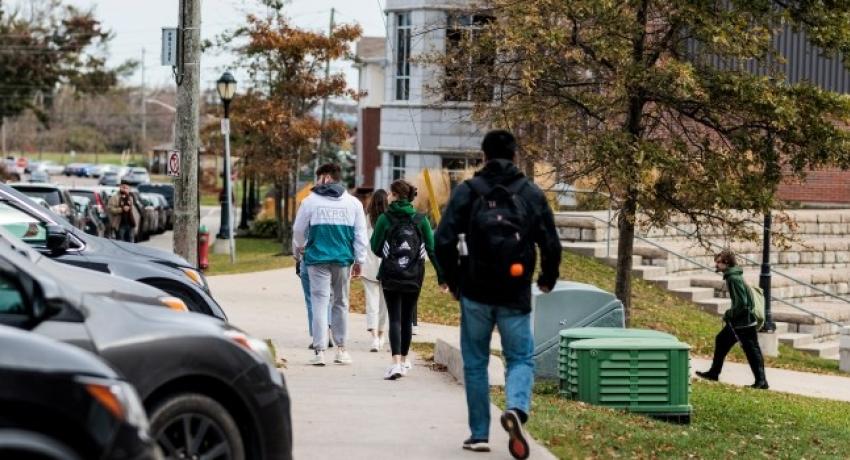Gambling Awareness for Post-Secondary Students:
As Summer nights get a bit shorter and the Island air a bit crisper, we all start to feel that back-to-school anticipation and excitement for what lies ahead in the coming months. For many young Islanders that means moving on to University and College to begin an amazing time of growth, learning and self-exploration. This is a chance for youth to spread their wings to a whole new world of limitless opportunities and adventure. It’s also a time for parents and caregivers to see youth take the next steps into adulthood.
Youth who are beginning their post-secondary journey will experience many changes. They may be living in a new place with new people. Their school may be in a new community and not even know where the local coffee shop is. They may be leaving all their friends and family behind. With all the possibilities of experiencing positive life changes, there is also an opportunity for problems to arise, like harms from gambling.
Gambling among University/College students is a growing concern, and one that should be talked about openly. With the increase in access and availability of gambling it can become a problem for some. In particular, the rise of mobile sports betting, online gambling, and gaming are more accessible than ever before.
Why do College Students Gamble?
There can be a variety of reasons why University/College students gamble. This new life on campus can be a stressful time, with new anxieties and worries. Gambling may seem like an escape from these worries. For some, it may be financial, and can be mistakenly looked at as a way to make money. Many University/College students may have received student loan funding, or may start receiving offers for credit cards and now have easier access to money without having the skills to make a budget plan.
Gambling can also be seen as a way to socialize and make new friends. Some students may feel peer pressure to gamble to “fit in” on a new sports team or other student peer group. In addition, many campuses sponsor events such as casino nights and poker tournaments. While for many this is not a problem, for some it can trigger a much larger problem with harm from gambling and turn into addiction.
What are the Warning Signs
Harm from gambling can be easy to hide. It is called the hidden addiction. However, there are warning signs. Specifically in University/College students, warning signs can look like:
- Distraction from schoolwork, employment, and assignments.
- Isolation from friends and family.
- Decreased enjoyment from other activities.
- Increased anxiety and stress about gambling.
- Gambling taking priority over other activities.
- Poor nutrition, health, sleep and substance use issues
What can we do to support University/College students?
Gambling is called the hidden addiction in part because it is often not talked about. Gambling can be very isolating, and people often feel alone. A person may even lie about their gambling habits due to feelings of shame and stigma. This also prevents a person from seeking appropriate care if and when they need it. Talking about what gambling is, and how it can cause harm for some, can help to break down stigma. It’s very important to normalize help-seeking to students so they know that reaching out for support is okay. Most importantly, know that help is available.
Where can students and their loved ones find help?
- The PEI Gambling Support Line #1-855-255-4255 is available 24/7. Confidential support is provided by trained PEI health care professionals, and you can call as often as you like.
- Visit www.PEIGamblingSupport.com for great resources and information for you or your loved ones.
- PEI Mental Health and Addiction Open Access Counselling: you can speak with a mental health or addictions counsellor. No appointment or referral is required. Simply drop in. Available hours, locations, and contact information can be found at https://healthpei.ca/OpenAccessCounselling
- PlayWise through Red Shores and ALC.ca offers responsible gambling information and tools like limit setting and self-exclusion
